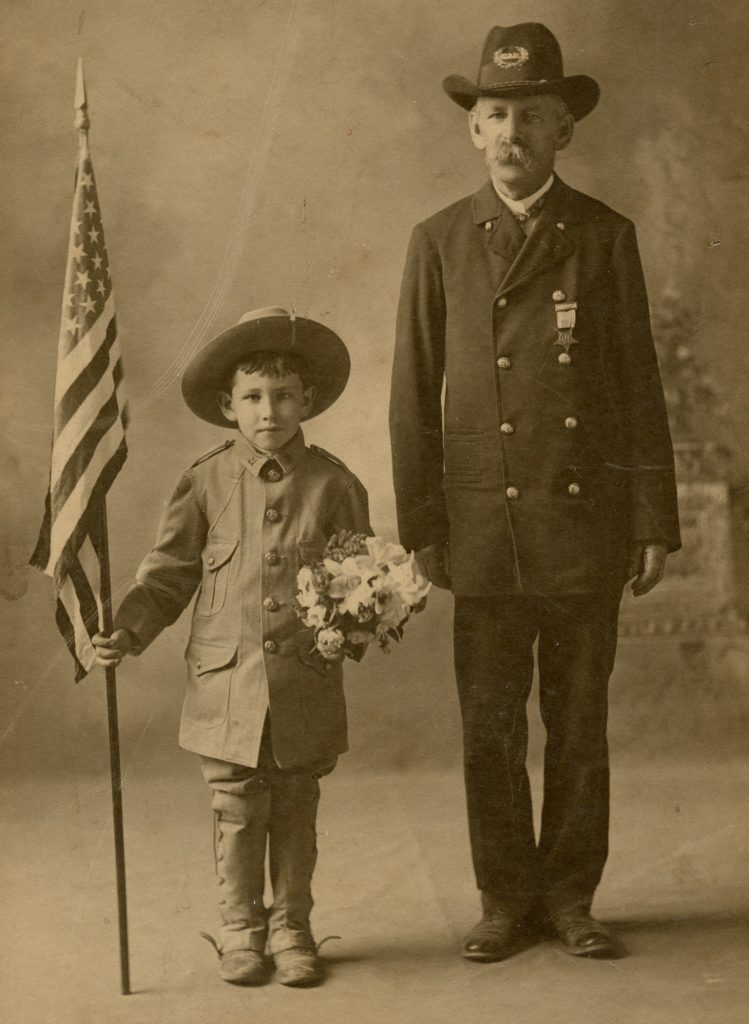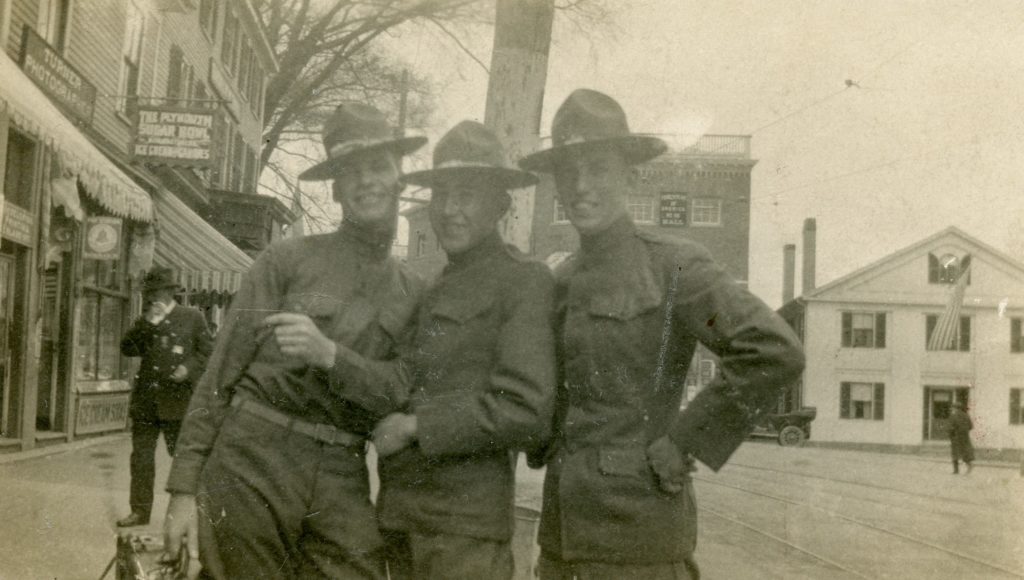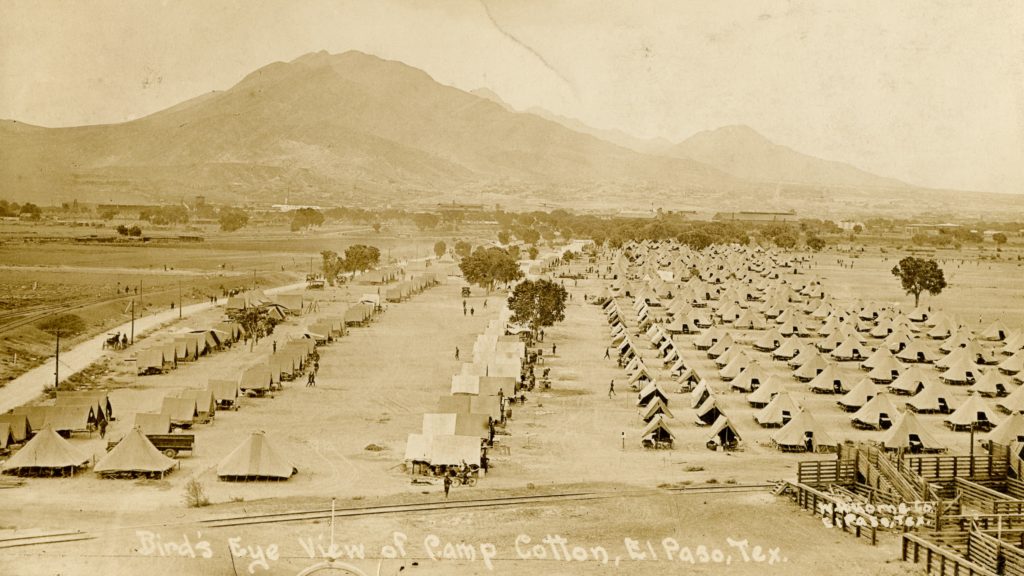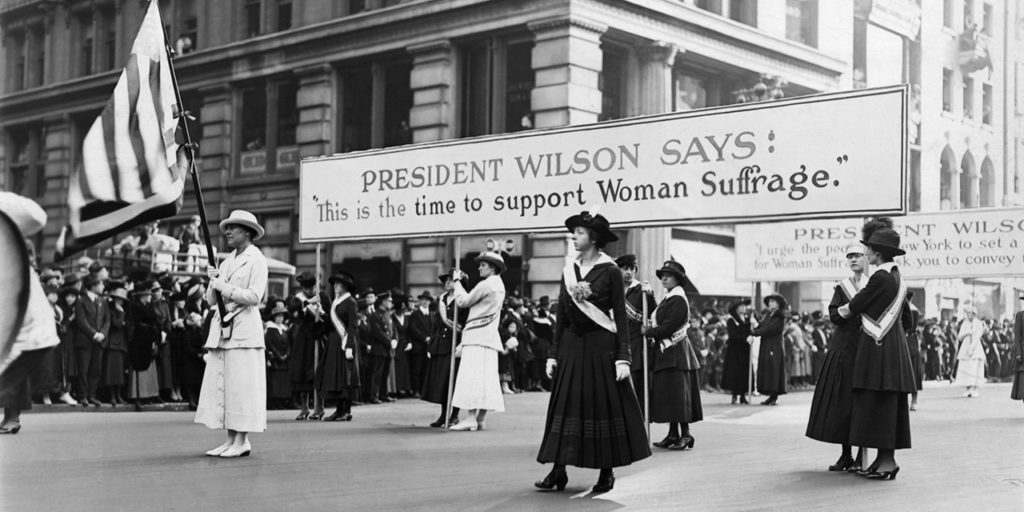The poppies that bloomed across battlefields and graves in France inspired Canadian surgeon John McCrae to write “In Flanders Fields” in 1915. Since the poem’s publication the poppy has been used as a symbol of remembrance around the world. To commemorate the 100th anniversary of the end of World War I, PAS members and other volunteers knit and crocheted over 1,000 poppies to create a special installation on the Hedge House Lawn—a visual tribute to all those from Plymouth County who have served in wars, conflicts, and peacekeeping operations. This project was inspired by the 5000 Poppies initiative and generously sponsored and produced by PAS Trustee Denise De More.
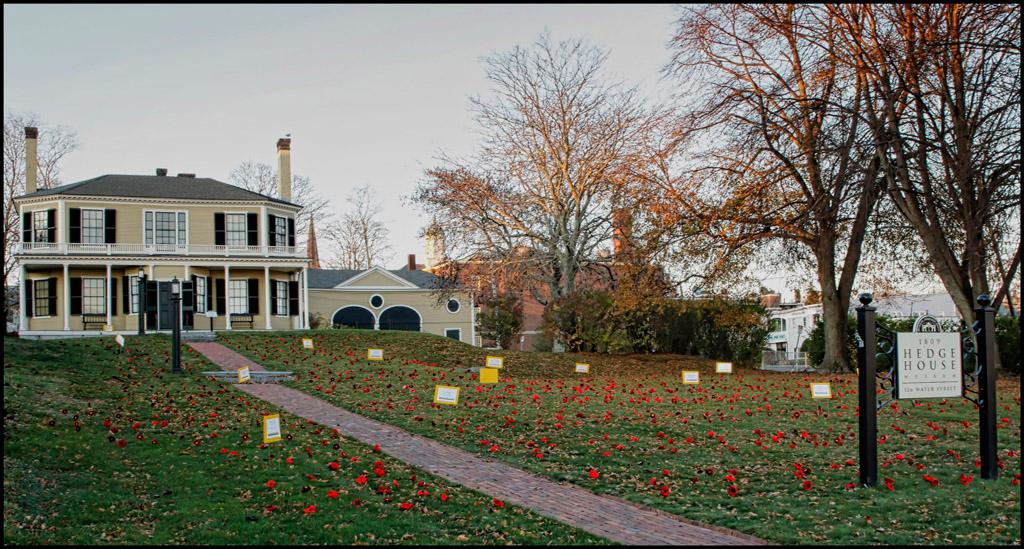
Photo by Jeanne Lesperance
In Flanders fields the poppies blow
Between the crosses, row on row,
That mark our place; and in the sky
The larks, still bravely singing, fly
Scarce heard amid the guns below.
We are the Dead. Short days ago
We lived, felt dawn, saw sunset glow,
Loved and were loved, and now we lie,
In Flanders fields.
Take up our quarrel with the foe:
To you from failing hands we throw
The torch; be yours to hold it high.
If ye break faith with us who die
We shall not sleep, though poppies grow
In Flanders fields.
Plymouth Men Lost in World War I
Robert Bain
George F. Barrett
Guiseppi Bernado
William C. Bonney
William R. Cottrell
Harvey Davenport
Arthur E. Doten
Walter A. Eastwood
Percy Fish
Chester R. Howland
Leonard B. Langille
Edward J. Lavoie
Joseph F. Lawrence
William R. Maybury
Harrison Murray
Llewellyn C. Small
Adam J. Smith
Samuel J. Smith
Horace D. Stringer
Joseph W. Taylor
Napoleon Viau
Michael J. Vitti
Chester W. Ward
Gustave T. Wirzburger
Dedications
The local community members who knit and crocheted poppies for the Plymouth Antiquarian Society’s WWI centennial installation made the following dedications:
In memory of my father, Aeneas M. Casey, who served in WWI, I have dedicated sixteen poppies; one poppy to his memory from each of his children, spouses, and grandchildren.
Stephanie Berlo, Quincy, MA
In memory of my uncles, Crawford Hoxie, Robert Hoxie, Milton Hoxie, and Channing Hoxie, and my dad, Gilbert Hoxie; all served during WWII.
Harriet Hoxie, Quincy, MA
In memory of William Henry Pitts, Fred Bates Morse, and Carl C. Lord, the three men from East Bridgewater who were lost in World War I.
Lois Nelson, East Bridgewater, MA
In honor of all veterans who served this country, including my grandfather, Wilfred J. Bois, who served in WWI.
Deborah Correa, Manomet, MA
In memory of my father, George Piepiora, my uncle, Joe Murphy, and my brother–in–law, Jack Manuel.
Helen Avitabile, Weymouth, MA
In memory of all service members, especially:
My father, C. George Piepiora (WWII 3rd Armored Division)
My husband, John R. Manuel (USN Vietnam Era)
My son-in-law, Andrew S. Rice (Army)
My uncle, Patrick Joseph Murphy (USN WWII)
Liz Manuel, East Wareham, MA
Dedicated to Anthony F. Noble (Army)
Kathleen Frye, Plymouth, MA
Dedicated to my dear Uncle Willy Bracco, who served in WWI. Truly forgotten – a dear sweet man. He was the only one of four brothers eligible to serve his country; the others were too young for WWI and too old for WWII.
Kathy Burns, Plymouth, MA
In memory of all veterans, especially James Callahan and his brother Mike, who was killed in action in WWII.
Evelyn Callahan, Stoughton, MA
Dedicated to my father and uncles who served in WWII: David B. Freeman, James O. Freeman, and Howard E. Twombly.
Carolyn Freeman Travers, Middleboro, MA
In memory of Cameron MacDonald of Little Pond, PEI, Canada, who later became a US citizen, and of Edward Hutchinson.
Jane Murphy, Duxbury, MA
Additional poppies created by:
Karen Anastos, Hingham, MA
Jeannette Colas, Plymouth, MA
Janet Cole
Die Modlin Hoxie, Sandwich, MA
Barbara Keyes, Plymouth, MA
Mary O’Brien
Judith O’Neil, Rockland, MA
Susan Painter, Rockland, MA
Doreen Roderick, Quincy, MA
Martha Sulya, Monument Beach, MA
The Knotty Knitters, Kingston Public Library, Kingston, MA
Carol Zahn & the Monday Morning Knitting Group at the Center for Active Living, Plymouth, MA
And many others who did not provide their names
Special thanks to:
Plymouth Harbor Knits, Plymouth, MA and Yarns in the Square, Hingham, MA for coordinating, promoting, and collecting poppies for this event

